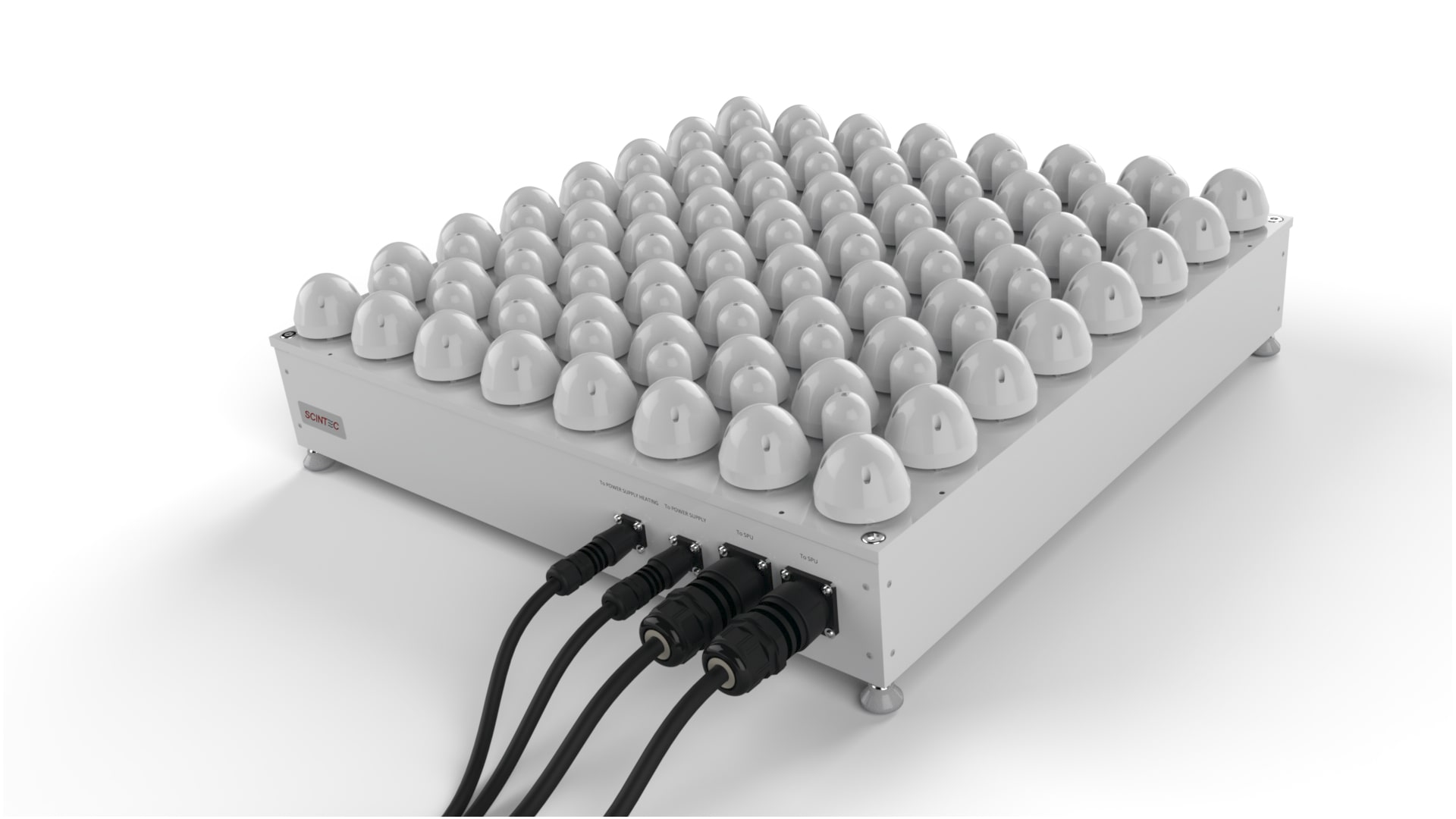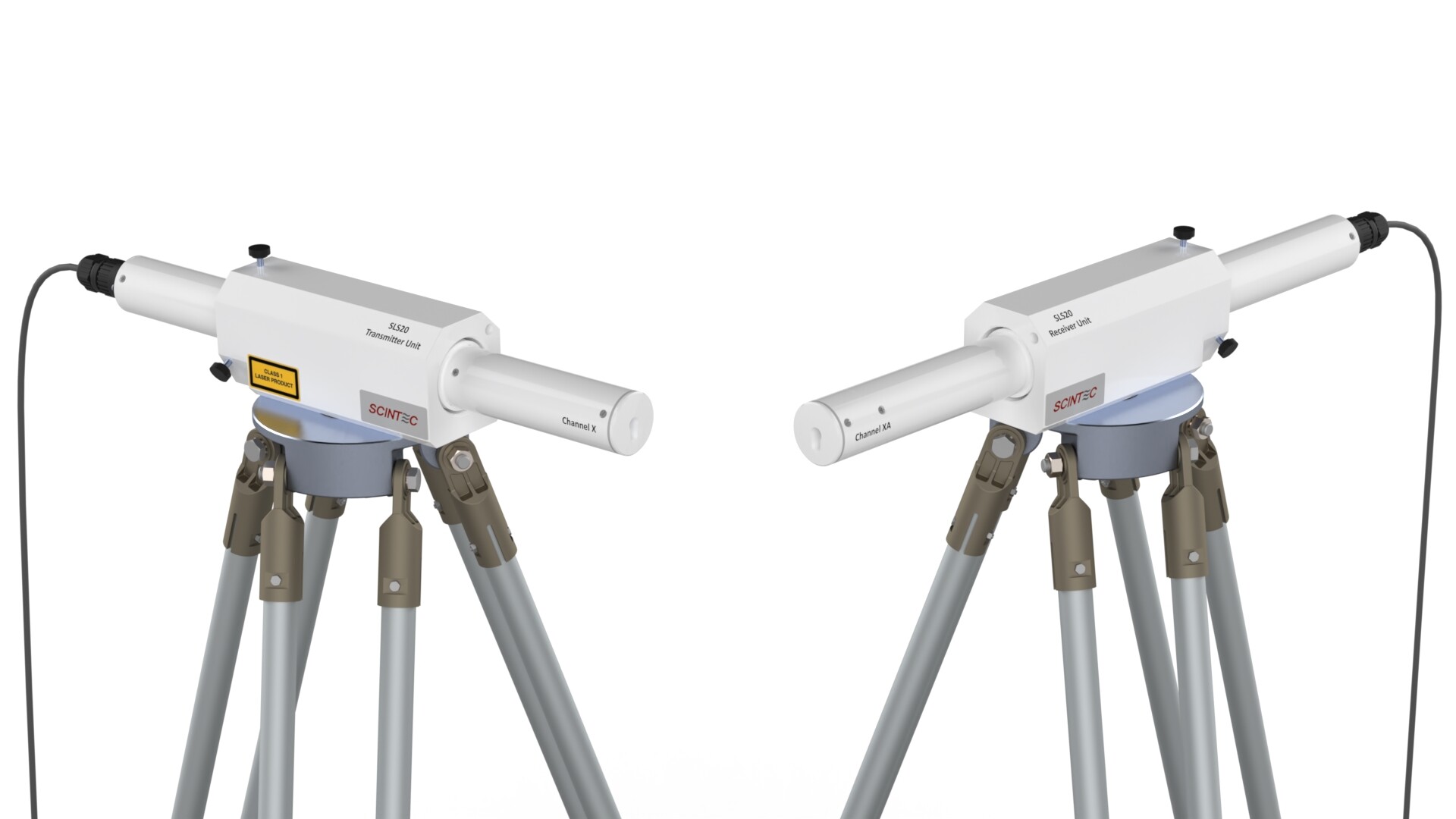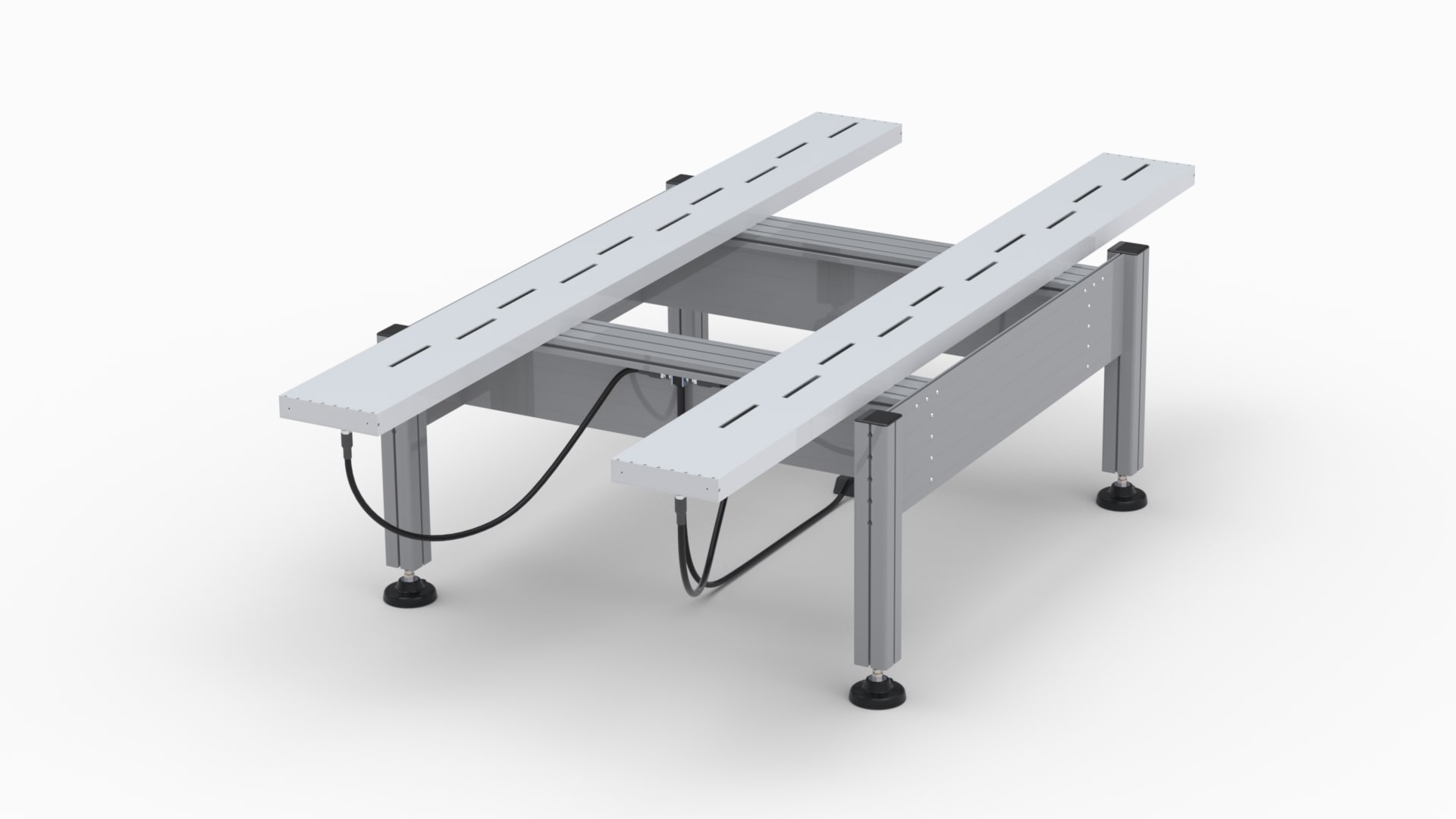Research in meteorology and related sciences has always been a key market for Scintec. Hundreds of universities and famous research institutes all over the world have been using Scintec products to gain knowledge and understanding in a large variety of academic disciplines. In fact, Scintec’s first products were particulary dedicated to the area of micrometeorological research. Today, Scintec products are used for studies of atmospheric processes on all spatial scales.
On the level of micrometeorology, the BLS and SLS Series Scintillometers are frequently used to analyze atmospheric turbulence and connected physical processes. Innovative scintillation technologies can assess atmospheric turbulence spatially averaged and with high temporal resolution. Structure parameters, turbulence dissipation rates and turbulent fluxes are typically determined. Scintec scintillometers have superior characteristics over other measurement technologies. With scintillometer data, turbulence theories are improved, models are developed or perfectionated, microscale processes are better described, more detailed understanding of urban climate is achieved, and satellite data algorithms are verified using ground-truth comparisons.
The FAS Series Sodar Wind Profilers are widely used in turbulence studies, also. With their vertical beams and possible access to raw data, Scintec sodars are valuable tools in investigating and understanding atmospheric turbulence structures.
BLS Series Scintillometers can measure over path lengths of several kilometers and hence already target at the mesoscale.
Sodar and radar wind profilers are used to characterize boundary layer flows and unveil local circulations. Sea breeze or catabatic flow systems are investigated. Heat islands are better understood. Convective systems, including storms, are analyzed.
RASS profilers can detect and quantify the formation of temperature inversions with their particular effects on air quality.
The continuity of measurements with sodar, radar and RASS profilers in space and time and the ability to measure in all weather conditions set these technologies apart.
The synoptic scale is the domain of radar wind profilers. Alone or in networks they significantly contribute to the understanding of large-scale physical interactions. Their all-weather capability allows for investigations in areas of precipitation including frontal zones. Synoptic-scale research based on radar wind profilers has significantly contributed to an improvement of climate models and numerical weather forecasts altogether.

MFAS is a versatile acoustic Wind Profiler which combines the both advantages of an excellent portability and a high detection range.

The Surface Layer Scintillometer for stable platforms or heavy tripods on solid ground.

for SFAS and MFAS
The Scintec windRASS Extension upgrades the Sodar models SFAS or MFAS to work in radio-acoustic mode for precise measurements of both wind and temperature.


